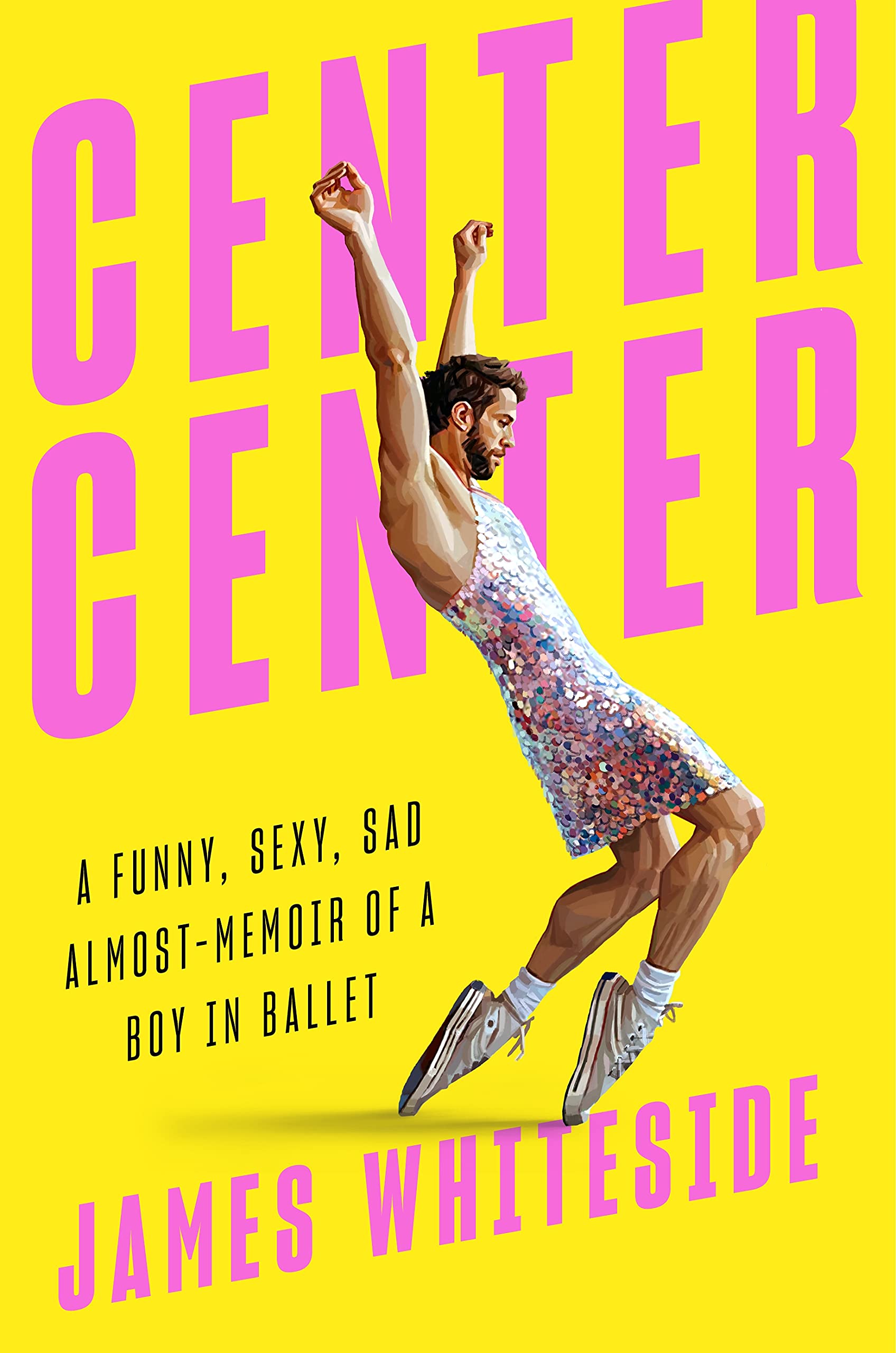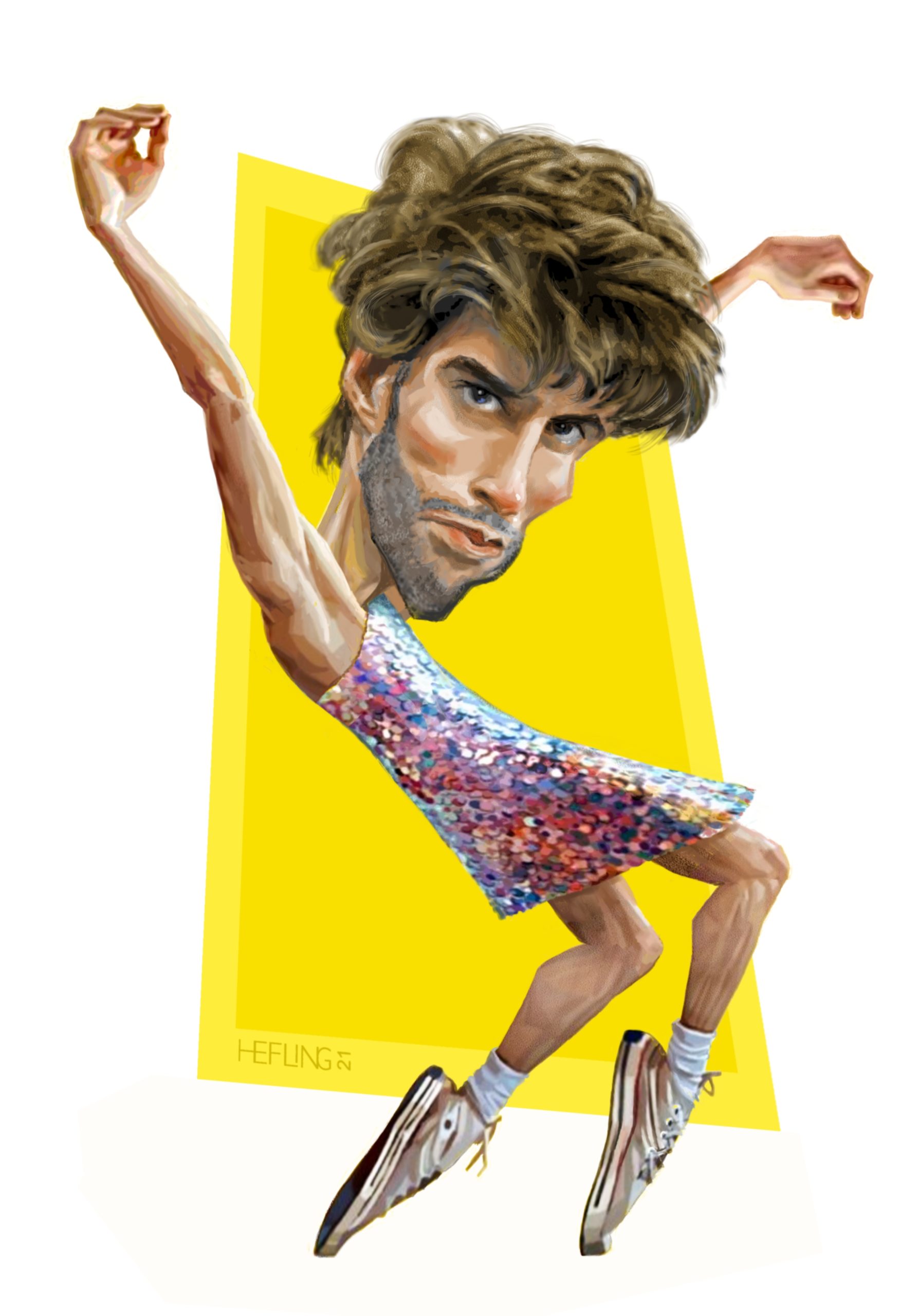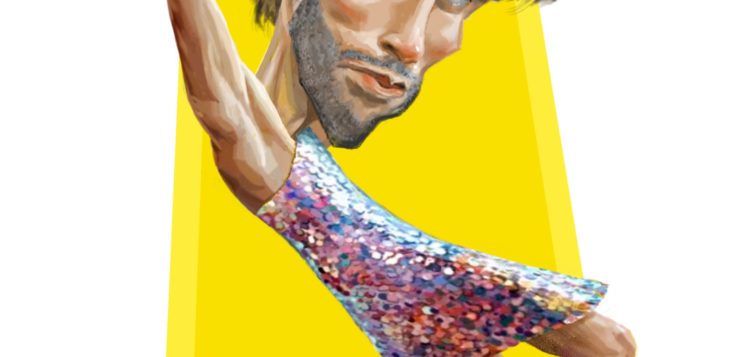 CENTER CENTER
CENTER CENTER
A Funny, Sexy, Sad Almost-Memoir of a Boy in Ballet
by James Whiteside
Viking. 256 pages, $27.
JAMES WHITESIDE is a principal dancer with the American Ballet Theatre who is openly and outspokenly gay. Center Center is a collection of autobiographical essays by Whiteside that reveal the journey he undertook to achieve his childhood dream. The book also documents the ways in which he rebels against ballet’s strict heterosexual roles. The essays are both more intimate and more subversive than is customary in memoirs, with reminisces about childhood pets and an imaginative encounter with Jesus on Grindr.
Whiteside’s passion for ballet comes across from the book’s beginning, when he attends American Ballet Theatre’s spring gala at Lincoln Center at age twelve. After the performance, his ballet teachers take him backstage to the famed Principal Hallway, where he thinks: “This will be my home one day.” He describes the long, uncertain process of getting there, earning two scholarships to ABT’s summer intensive and numerous failed auditions to their Studio Company. He gets a spot in the Boston Ballet, rising to principal dancer before re-auditioning for ABT. The company offers him a place at the bottom rung, but he rejects this offer and they come back with a soloist role.
 For all of Whiteside’s love for both ballet and ABT, he is clear about its limitations. He begins one essay with some of the negative suggestions he has received, such as “Don’t open your eyes so wide; it makes you look like a woman,” which underscored the great divide between male and female roles in ballet. In response, he created two personas that allowed him to blur these lines: drag queen Uhu Betch, named after his favorite chocolate drink, and “out-and-proud pop musician” JbDubs. He performs these characters at clubs and private parties. JbDubs has made albums and music videos shared through YouTube and social media. As Uhu, he’s part of a group of friends who perform drag as the Dairy Queens; as JbDubs, several friends were conscripted as backup dancers. They are legitimate performers poking fun at conventions through scrappiness and youthful ingenuity.
For all of Whiteside’s love for both ballet and ABT, he is clear about its limitations. He begins one essay with some of the negative suggestions he has received, such as “Don’t open your eyes so wide; it makes you look like a woman,” which underscored the great divide between male and female roles in ballet. In response, he created two personas that allowed him to blur these lines: drag queen Uhu Betch, named after his favorite chocolate drink, and “out-and-proud pop musician” JbDubs. He performs these characters at clubs and private parties. JbDubs has made albums and music videos shared through YouTube and social media. As Uhu, he’s part of a group of friends who perform drag as the Dairy Queens; as JbDubs, several friends were conscripted as backup dancers. They are legitimate performers poking fun at conventions through scrappiness and youthful ingenuity.
The book has a youthful, irreverent feel, from essay titles like “Getting Your Dream Job Is as Easy as ABT” to the illustrations by Teddy O’Connor, where, for instance, a letter to Whiteside is addressed to “Pimply Ho Interloping in Kirk Peterson’s Apartment.” Whiteside often takes a tone of comic exaggeration, adding “At least you got some sloppy D though!” to a rejection letter. He frequently expresses his frustrations in short sentences in all caps.
Yet for all the humor, Whiteside has plenty of thoughtful moments. He writes of the deep regret he feels for including “tranny” in a JbDubs song, understanding that while he did not know how hurtful that word is, “one can plead ignorance for only so long.” In “Nancy,” he talks about his parents, the children of wealthy Connecticut families whose affair (his father was swimming coach to his mother’s children) was the gossip of that decade in Greenwich. His mother Nancy, “number one housewife,” gradually goes through her inheritance, forced to move into a series of uncomfortably smaller homes while she battles addiction and cancer. During her final illness, Whiteside learns that she will probably not last the day, but still performs in a matinee production that afternoon, racing to her bedside afterwards to say goodbye. He wonders about this refusal to miss a performance even with his mother dying: “What does that say about me?”
Some pieces are quite inventive, such as a play about Whiteside stranded in Casablanca while trying to get back to New York, where the cast is performing songs by the girl group Pussycat Dolls. “How I Met Jesus Christ on Grindr” includes several fictional stories answering the dreaded question: “How did you start dancing?” Center Center fabulously combines playfulness and profundity in telling the story of a talented, driven dancer who pursues life to the fullest and repeatedly asks: “Why Not?”
Charles Green is a writer based in Annapolis, MD.






